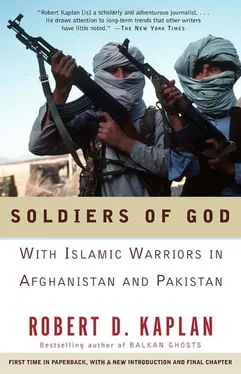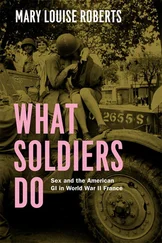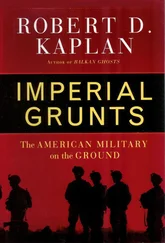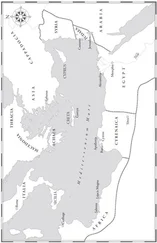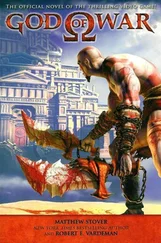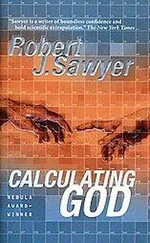The Tajiks at Jamiat headquarters spoke in catchy soundbite phrases (“In six years we’ve gone from stones to Stingers” and “We ask for mine-clearing equipment and our allies give us coin detectors”); Haq offered substance. Jamiat’s people in Peshawar were just spokesmen; Haq was a commander with a self-deprecating sense of humor, a good analytical mind, and a sense of rebellion against his own family and party, all of whose members seemed very different from him. But Haq was not usually in Peshawar in the mid-1980s, and he rarely took journalists inside with him.
It was only because of a terrible injury that I got to know Abdul Haq and Hizb-i-Islami. It was the kind of accident that occurred all the time in Afghanistan. Months later, after I knew him better, Haq told me how it had happened.
It was in early October 1987. At eight thousand feet in the mountains overlooking Kabul, winter had already come. The plan was to attack six Soviet targets: the Kabul airfield and radar station and several military bases north and west of the capital. On October 11, Haq’s particular destination was Qarga, a lake region that was the site of a golf course used by foreign diplomats and a major Soviet base. Qarga had once before been lucky for him: fourteen months earlier, in August 1986, he launched a spectacular raid that destroyed the base’s ammunition dump.
At about 7:15 in the evening, Haq and a forward guerrilla unit were advancing on Qarga from the west. The Soviets, perhaps anticipating an attack, had flown over the region several hours before, peppering the bare, eroded mountainside with butterfly mines. To avoid the mines, the mujahidin took a detour. It was dark, with strong winds and heavy rain mixed with snow. The mud might have been as deep as two feet in some spots.
“There was a mud trench, about six or seven meters long, which we had to cross to get to the road,” Haq told me. “Four or five mujahidin were walking in front of me. There was some shooting and firing nearby, which you know there always is in Afghanistan. Each of us placed our foot into the hole made by the one ahead. Though we took the long way around, we still had to be careful of mines.
“You have to remember how dark and muddy it was. Anyway, because of the mud I did a stupid thing. I slid a few centimeters off the path, something I never did before. Then I saw my boot fly up in the air in front of me. It was like I was dreaming. I was wounded fourteen times before, but this time I really felt nothing at first. I tried to take a few more steps, but then the rocks crushed against the exposed bone and nerves of my right foot and suddenly I got dizzy and fell. I told the major behind me that I needed a tourniquet. When he saw the blood pouring out on the snow he started screaming and all the others came. You see, they were all afraid to touch me because I was their commander. We had no doctor or medical supplies. We Afghans are so stupid sometimes.
“So what did we do? We started arguing. I argued against going back. I said I must write a letter explaining how the operation is to continue without me. But it was difficult to write because it was so dark and cold. I must have been completely delirious.”
The men made tourniquets out of a turban and tied them above and below his knee. Haq, who weighed over two hundred pounds, was carried piggyback for almost a mile until someone found a horse. Even with help he had trouble putting his good left foot in the stirrup. “By now there was so much blood and it was snowing harder,” Haq said. “All I could think of was how cold I was. On the horse I started vomiting so I had to get off and be carried again.” Strangely, he recalled, the pain was less vivid than the cold and the nausea.
Four hours later, Haq was lying on a jute bed in the house of another mujahidin commander in the town of Maidan Shahr (twenty-five miles southwest of Kabul), and the pain was “everywhere.” The guerrillas found a local doctor with some sort of knife, but he had no anesthetic and liquor is prohibited under Islamic law. A piece of bone hanging from what remained of his right foot had to be cut. “When the knife hit the bone, that was a bit difficult for me. Mujahidin rubbed my palms to take my mind off the pain. It didn’t help much.” Haq laughed when he told me this.
Someone took a snapshot of the commander five days later, after he had been transferred to a medical compound in Wardak province run by Médecin du Monde, a Paris-based relief group. Part of his foot had just been amputated by a French-trained Hungarian doctor, a refugee of the 1956 revolution against the Soviets. (This time an anesthetic was available.) In the photograph, Haq is pointing his exposed stump toward the camera and smiling. “Because I knew I lost part of my foot for a logical reason, I felt less depressed,” he said to me. “I pity such people who lose limbs in car accidents and other stupid things.” Haq was lucky. The mine that wounded him was a pressure-pad mine, a powerful antipersonnel weapon that would have blown off his whole leg or killed him if he had stepped on it directly rather than slid down on it at an angle.
His pain seemed to grow day by day. I rarely saw Haq when he wasn’t in some physical discomfort. Always, he would be taking off his Reebok running shoe, fitted with a special plastic shin support, to massage the ball of his foot. I met him for the first time a week after the snapshot was taken. He was drawing deep, wheezing breaths against the pain and sweating in streams. Fie had just been jammed into the back seat of a car, without any drugs, for a three-hour trip to Islamabad in order to meet with the U.S. ambassador to Pakistan, Arnold Raphel, before being flown to a hospital in Pittsburgh at the U.S. government’s expense. There he was to have a second amputation, to remove more bone fragments and damaged nerves. When he got to Pittsburgh he was given painkillers for the first time since his accident.
I sat in the front seat of the car and asked him how he felt. He was told only a few minutes earlier that I was a journalist who wanted to ask him some questions. He had a huge round head covered with short black hair, graying sideburns, and a close, scruffy beard, which partially concealed a mild case of acne. Though he was personally responsible for the deaths of hundreds of Soviet soldiers, his eyes didn’t reflect this. Haq’s small, dark eyes registered considerable pain, but they weren’t jaded, nor were they lifeless or cynical looking. He could have been a Jewish actor hired to play the role of a Third World guerrilla leader.
Speaking was hard for him. Between breaths, he explained that the only thing he wanted to do was return to Afghanistan to fight. It was what every Afghan said when wounded, so the words had little effect on me. He was a burly man but his voice was not deep at all. There was almost nothing about him that was menacing. He thanked me profusely for my concern and I left the car. I was with him for less than five minutes. When I saw him next, three months later, he remembered me instantly and apologized for not having been able to say more.
I had met Palestinian leaders in Syria and Jordan, Polisario leaders in Algeria, Kurdish guerrillas in Iraq and Iran, and Eritrean and Tigrean guerrillas in northern Ethiopia. Most had eyes that appeared to undress you and peer into your innermost secrets. All of them were burdened by an emotional austerity bordering on asceticism which saw individual people only in the abstract, as mere symbols that could be wiped off a board without remorse. The Eritreans were less like this, but they had a sadness and a cynicism that was beyond belief. You couldn’t really get to know any of those leaders; it seemed as if there were an invisible, high-voltage field between you and them. You could observe them, and write about them, but you couldn’t get to know them.
Читать дальше
